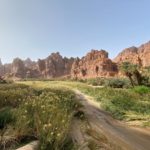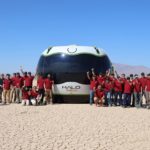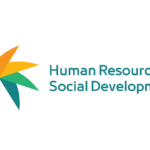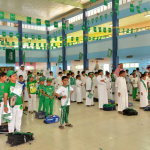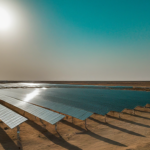
“We know for certain it’s uncertain…We have to be able to take measures to head off negative trends and developments — to nip them in the bud.”
-Prince Abdulaziz bin Salman, Saudi energy minister, in comments to the OPEC+ group on Monday. According to Bloomberg, the OPEC+ alliance warned of a “precarious” outlook as a resurgent coronavirus pandemic hurts oil demand, dropping further hints about a potential change of policy next month. [Bloomberg]

“I wish that every United States diplomat, military officer and journalist would read this book before deploying there. I wish that every member of Congress would read it before voting on any measure related to Saudi Arabia. I wish every American pondering the frictions of our long relationship with the Saudis would read it simply to understand.”
-Kenneth M. Pollack reviews David H. Rundell’s “Vision or Mirage: Saudi Arabia at the Crossroads” for the New York Times. [New York Times]

“I believe that the focus now needs to be on getting the Palestinians and the Israelis back to the negotiating table. In the end, the only thing that can deliver lasting peace and lasting stability is an agreement between the Palestinians and the Israelis.”
-Saudi Foreign Minister Prince Faisal bin Farhan Al Saud, in a virtual appearance at a U.S. think tank. [Reuters]

“While the opportunity is immense, the advancement of the hydrogen sector is not without its challenges. The availability of high levels of cost-effective renewable electricity is integral to its viability. This can only be found in a few countries of the world. The Kingdom, with abundant potential for low cost solar and wind energy, is one of them.”
-Peter Terium, managing director of energy, water and fuel for NEOM, speaks with Frank Kane of Arab News about Saudi plans to develop hydrogen as part of its energy mix. [Arab News]

“The event had been envisioned to be held in the Saudi capital, Riyadh, a rare gathering of diverse religious figures in the conservative Islamic nation. However, due to the coronavirus pandemic, the forum is being held virtually like other high-profile G-20 events hosted by Saudi Arabia.”
–Aya Batrawy reports for Associated Press on the ongoing virtual global interfaith forum presided over by Saudi Arabia that includes participation from Muslim clerics, Jewish rabbis, Christian priests and other religious figures. [Associated Press]

“The collapse of Arabtec is symptomatic of an industry that is in crisis. Lowest price competitive tendering, inequitable risk allocation, low profit margins, uncertain pipeline and late payments drag the construction industry down meaning that it is challenging for the sector to invest in building new skills and innovation that will boost productivity and improve delivery.”
-Kenny Linn, Partner, Capital Project Services Leader at PwC Middle East, commenting on construction giant Arabtec’s plan to liquidate and the implications for the region. [Arabian Business]

“The largest self-contained oasis in the world is the Al-Ahsa Oasis. Located in south-eastern Saudi Arabia, there are more than 2.5 million palm trees in the oasis, which is fed from a huge underground aquifer, which allows agriculture all year round in a region that is otherwise sand desert. The oasis is named after the Al-Ahsa region in which it lies, and occupies around 85.4 square kilometres (32.9 square miles) irrigated by the flow of more than 280 artesian springs.”
-Guinness Book of World Records, in an announcement confirming Al-Ahsa in Saudi Arabia as the largest self-contained oasis in the world. [Guinness Book]

“It is the lowest-cost producers — such as Kuwait, Saudi Arabia, and the United Arab Emirates — that will be able to keep selling their oil the longest….What’s more, stronger climate policies should focus not just on the greenhouse gases emitted by burning a fuel, but the carbon intensity of the entire production cycle. Most Gulf Arab states are very efficient producers.”
-Jason Bordoff, director of the Centre on Global Energy Policy at Columbia University and a former White House energy policy adviser, arguing in a new post that “everything you think about the geopolitics of climate change is wrong.” [columbia.edu]

“We are in touch with companies from all over the world to come and tap into the kingdom’s opportunity in renewable energy. However, I’ve seen firsthand how Iowa is one of the top producers of wind energy in the U.S. and the world, and we wish to partner with them.”
-Abdulrahman Bakir, Vice President, Investment, Attraction and Development, Saudi Ministry of Investment, during a recent visit to Des Moines, Iowa. [AgriMarketing]

“Let’s agree that given the global economic situation, full diversification won’t happen by 2030. To completely wean a giant economy like Saudi off oil, it will require at least 50 years more. So as long as oil is with us, make more money out of it if you can.”
-An unnamed source to Reuters, discussing how as Saudi Arabia works to diversify it’s economy, it still intends to maximize oil revenue as long as possible. With almost 20% of the world’s proven reserves and production costs of just $4 a barrel, “Aramco believes it can undercut competitors and carry on making money even when lower oil prices make it unprofitable for rivals,” Reuters reports. [Reuters]





